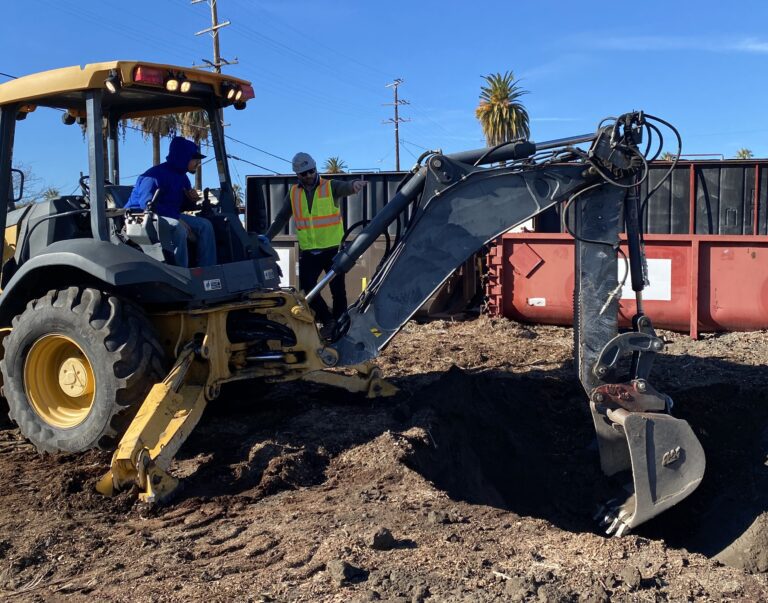Mafic Definition
In geology, “mafic” is a term that describes an igneous rock that has an abundance of darker color minerals.
In geology, “mafic” is a term that describes an igneous rock that has an abundance of darker color minerals.

Transgression Transgression: In geology, the term transgression is the formation of a specific sequence of sedimentary and metamorphic layers, that are the result of ocean water advancing onto land. To illustrate, when transgression occurs over millions of years, geologists find a layer of sand, overlain by shale, and overlain again by limestone. The opposite of…

Impervious Membrane in Methane Mitigation Impervious Membrane: In accordance with the Los Angeles Department of Building and Safety (LADBS) Methane Code, Ordinance Number 175790, an impervious membrane is a continuous methane gas barrier. It is a crucial part of the methane mitigation process and underlies a building to impede the vapor intrusion of methane soil gas….

Liquefaction Liquefaction: Liquefaction is the process by which there is: (1) a sudden and significant decrease of shear resistance in a soil sample (cohesion-less); (2) a sudden (but temporary) increase of the pore-water pressure of a substance; and (3) a solid mass of soil that is transformed into a fluid state mass. In the event…

Unconfined Aquifer Unconfined Aquifer: In the hydrogeology branch of geology, an unconfined aquifer is an aquifer that has a water table. In fact, an unconfined aquifer can only be the uppermost hydrogeologic unit and is particularly one that has no hydraulic head (or pressure) that is equal to atmospheric pressure. To illustrate, depth to groundwater…

Water Table Water Table: In the hydrogeology branch of geology, the water table represents the surface of an unconfined groundwater aquifer, where the hydraulic pressure is equal to atmospheric pressure. Additionally, a water table is present in a perched groundwater zone. Although, there is no water table in a confined aquifer.

Environmental Professional Definition Environmental Professional: As per the EPA’s All Appropriate Inquiries Rule, an environmental professional is an environmental consultant that has an accredited education in earth or natural science, at least five years of formal training under another environmental professional, a professional state license, and maintains expert knowledge in the environmental geology, sustainability, and…